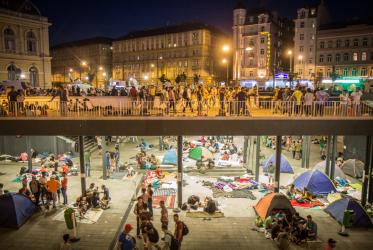Displaying 1 - 10 of 10
Christian communicators work to counter hate speech against refugees
10 December 2018
Conference explores Christian approach to borders
05 October 2017
Refugees in transit: pushing boundaries all around
08 February 2016
Italian churches urge more “humanitarian corridors” for migrants
12 November 2015
European churches encouraged to work together to address refugee crisis
10 September 2015






